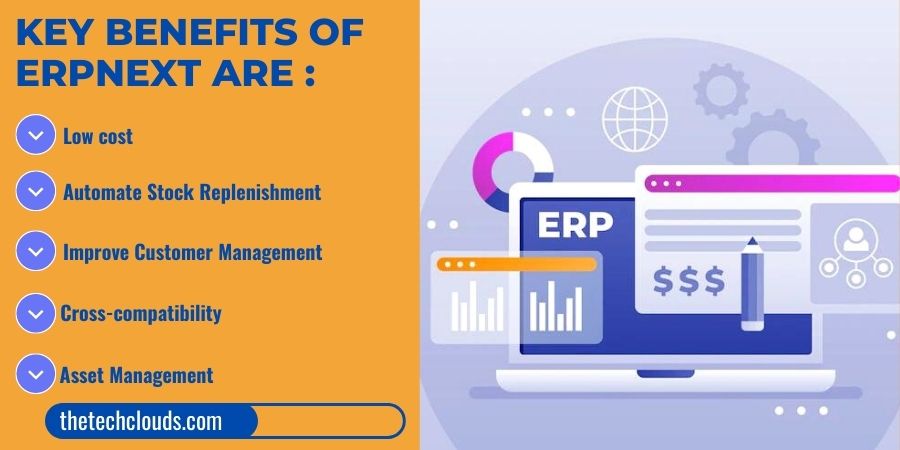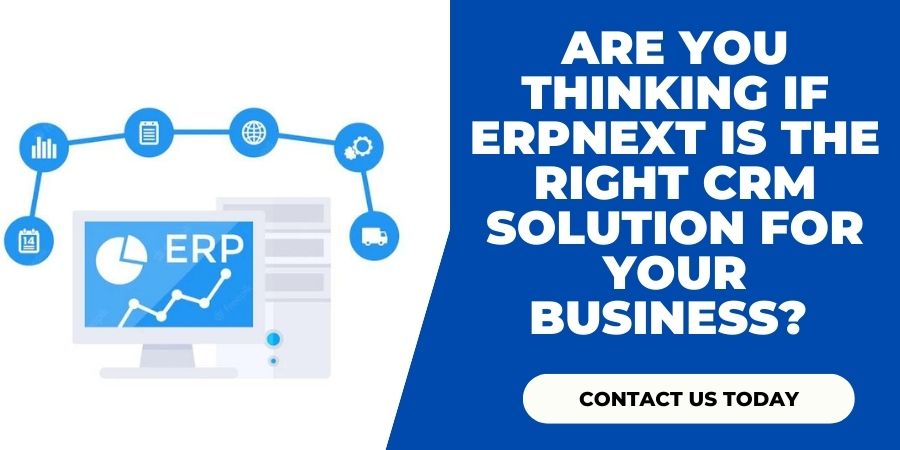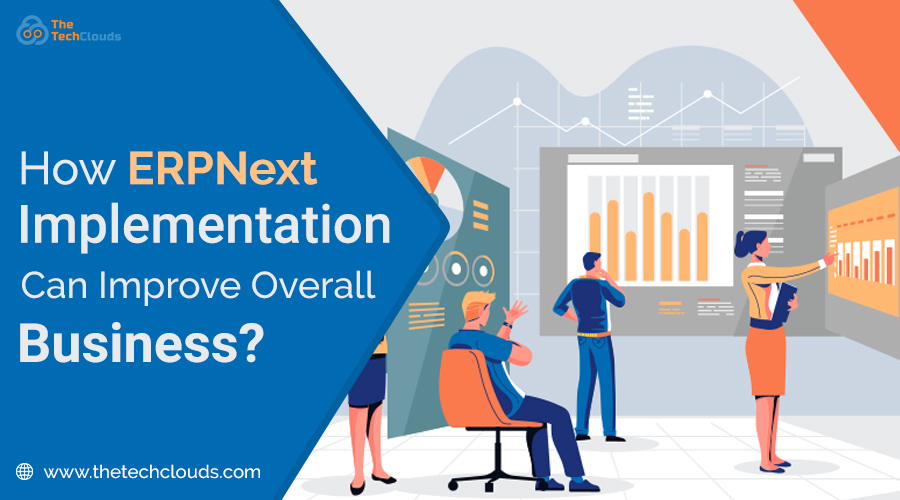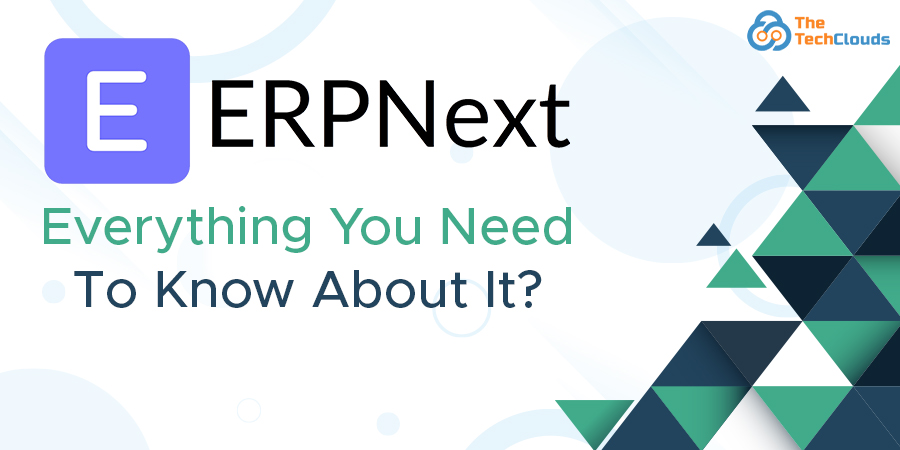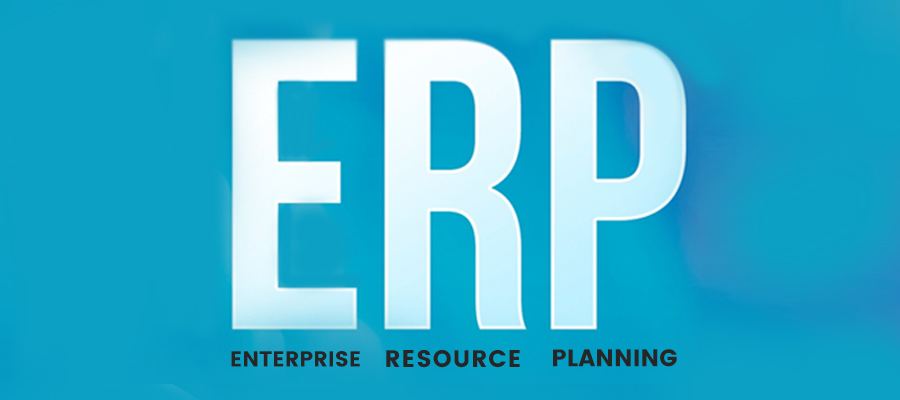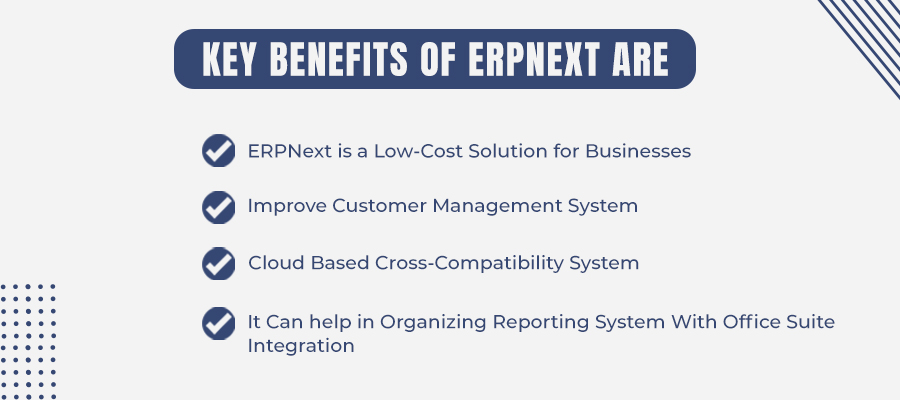According to new findings, 85 percent of major corporations and 55 percent of small and medium businesses have used some form of ERP solution or have an ERP solution company by their side? Did you know that? Well, this is because all businesses mainly focus on: Increasing productivity: Designed to streamline internal operations by implementing software to achieve greater efficiency, and connecting company solutions so that they can communicate with one another.
Reducing Costs: Creating processes to reduce man-hours of work in order to optimize time. Employ online software for company management to increase efficiency and productivity. This is made feasible by using ERP and ERP solution company, which makes it easier to complete tasks quickly, easily, and flexibly.
This is all made possible through ERP and ERP solution companies, which help businesses complete tasks quickly, efficiently, and with greater flexibility. ERP for small business is especially valuable, as it allows smaller enterprises to manage operations, finance, and inventory with the same level of control as larger corporations.
Additionally, e-commerce solutions integrated within ERP systems enable businesses to track orders, customer behavior, and online sales performance—all in real time. This empowers companies to make informed decisions and scale faster in an increasingly digital marketplace.
What is an ERP ???
ERP stands for “Enterprise Resource Planning,” or enterprise resource planning system. Erp solutions are not only systems that incorporate the different departments within an organization; they are also one of the basic pieces, as they allow us to manage all aspects of administration, purchases, sales, payouts, and payroll, among other things. The EPR is responsible for managing and regulating the organization’s resources, procedures, and operations, as well as automating many operational and creative tasks.

It’s crucial to remember that not all ERPs are created equal. They will require one form of ERP software or another, based on the scale of the organization and the work space. ERP types are classified by their design:
- OpenSource
- Customized
- Pre-made
- Pre-defined
- Premises
- Cloud computing
It’s crucial to remember that not all ERPs are created equal. The ideal ERP solution depends on the organization’s size, industry, and operational complexity. Every business—whether a startup or an enterprise—will require one form of ERP software or another, depending on their unique workspace needs.
ERP types are generally classified by their design:
Open-Source ERP:
This type of ERP allows businesses to access and modify the source code to suit their specific requirements. It offers flexibility and cost-effectiveness, especially for those with in-house technical teams. Many erpnext service providers offer tailored solutions based on this model to enhance system functionality for growing businesses.
Customized ERP:
These systems are built from the ground up or heavily modified to meet the unique processes of a company. While they offer a perfect fit, they often require more time and resources to implement. This is particularly beneficial in specialized sectors like cleaning services, where off-the-shelf ERPs may not address industry-specific workflows.
Pre-made ERP:
These are ready-to-use systems that cater to common business processes and are often quicker to deploy. They are ideal for businesses looking for a balance between functionality and speed of implementation.
Pre-defined ERP:
This model provides a standardized approach with industry-specific templates. It’s ideal for companies that don’t need heavy customization and want to align with best practices. The small business industry often benefits from these solutions due to their simplicity and scalability.
On-Premises ERP:
This traditional model involves hosting the ERP system on the company’s own servers. It provides full control over data and customization, making it suitable for businesses with strong IT infrastructures.
Cloud Computing ERP:
Hosted on external servers and accessible via the internet, cloud-based ERP offers scalability, remote access, and reduced maintenance costs. It’s an excellent choice for businesses aiming for flexibility and long-term growth.
The Crucial Role of ERP in Organizations:
Optimizing Internal Operations
ERP systems play a vital role in streamlining internal processes, connecting different functions of the business, and making them work together seamlessly. This improved workflow is crucial for businesses like cleaning services that often require scheduling and resource management to run smoothly.
Enhancing Data Accessibility
ERP solutions improve the way information is accessed across the company, providing a centralized database for all employees. This boosts efficiency, especially when dealing with varied data sources that need to be accessed in real time, such as for erpnext service providers offering solutions for small businesses.
Eliminating Data Redundancy
By integrating various functions into one platform, ERP systems remove duplicate data entries, leading to a more accurate and consistent database across departments. This not only reduces errors but also saves time by ensuring data is up-to-date and reliable.
Simplifying Administrative Tasks
ERP systems automate routine administrative functions, making tasks like documentation, reporting, and compliance management less time-consuming. For businesses, especially in industries like small business industries, this reduces the burden on administrative staff and enables them to focus on more critical tasks.
Improving Decision-Making
The data collected and organized by ERP systems enables better decision-making processes. With real-time access to key performance indicators and trends, managers can make informed decisions more quickly, ultimately improving overall business strategy.
Managing Payments, Payrolls, and Inventories
ERPs simplify the management of financial operations such as payments, payrolls, and inventory control. This automation ensures these critical functions are handled efficiently, reducing manual errors and improving transparency in financial reporting.
Boosting Internal Communication
ERP systems break down silos within an organization by improving communication between departments. By providing a unified platform for communication and data sharing, they help employees collaborate more effectively, improving overall productivity.
Automating Routine Tasks
Routine tasks, such as data entry, scheduling, and reporting, can be automated with ERP software, freeing up valuable time for employees to focus on more strategic responsibilities. This leads to increased efficiency, especially in small businesses, where resource optimization is key to success. Additionally, knowing the erpnext pricing helps small businesses plan their ERP adoption while ensuring they get the most value from the system’s automation capabilities.
ERP’s Importance in Organizations
- Streamline processes inside the company.
- Improve the information access procedure.
- Remove data duplication.
- Simplify the organization’s administrative functions.
- Enhance the decision-making methods.
- They are in charge of the organization’s payments, payrolls, and inventories.
- Internal communication should be improved.
- Automate routine jobs.
Let us discuss ERPNext
It is an open source ERP system with a public license that can be configured to fit the needs of enterprises of all sizes and includes modules such as:
1. Financial Management
This module handles all financial transactions, including accounting, expense tracking, and budget management. It ensures accurate record-keeping and compliance with financial standards, making it easier to generate reports and monitor cash flow.
2. Customer Engagement (CRM)
The CRM module focuses on managing customer relationships—from lead generation to post-sale follow-ups. It helps streamline sales pipelines, monitor client interactions, and improve customer satisfaction. This feature is especially useful when implemented by an ERP solution company, which can tailor CRM processes to your specific industry needs.
3. Stock and Inventory Management
This module helps businesses manage stock levels, track items in real time, and reduce losses due to overstocking or stockouts. It’s especially beneficial for businesses with warehousing or retail components.
4. Procurement and Sales Tracking
The purchases and sales module manages the entire procurement and sales lifecycle—from purchase orders to supplier payments, and from sales quotations to customer billing. It offers complete visibility and control over supply chain operations.
5. Project Oversight
This module enables companies to plan, execute, and monitor various projects effectively. With features like task assignment, milestone tracking, time logging, and budget monitoring, it ensures every project remains on track and within budget. Its affordability and flexible erpnext pricing make it an ideal choice for businesses seeking powerful project management tools without overspending.
6. Human Resource Management
This module simplifies employee management by overseeing recruitment, attendance, payroll, appraisals, and training. For businesses looking to scale, this module ensures smooth HR operations and employee satisfaction.
7. Talent Acquisition
Focused on recruitment; this module helps HR teams manage the hiring process—right from application tracking to interviews and onboarding. It ensures you attract and retain the right talent effectively. It’s particularly beneficial in ERP for small business setups, where streamlined hiring processes save both time and cost.
The primary characteristic of ERPNext is that it is very flexible and adaptable and thereby extending its capability you can design the custom forms and applications.
This ERP maintains a setup wizard through which all goods, clients, suppliers, and modules are produced, and ERPNext also enables you to examine the relationships that exist between the various modules, as you can go right from a purchase agreement to the development of a receivable account.
Features of ERPNext
It is adaptive and adjustable to any form of business especially ERP for small business is just very helpful. It is mostly constructed with Python, Javascript, Node JS, and Redis, and it has its own framework called Frappe. It uses the Mariadb database. – It has its own API that may be used. – All of the code can be changed. – Only the necessary modules can be adopted. – In charge of quality assurance. – It’s entirely free. – It is free and open source. – It has its own mobile app. – It supports multiple languages.
Let us walk you through ERPNext advantages and disadvantages
Advantage
– A centralized database will be used.
– It enables the organization’s procedures to be optimized.
– It can interface with other systems due to its versatility.
– It enables the organization to standardize its processes.
– Make the decision-making process more efficient.
– It enables the organization’s organized growth to be planned.
You can upload or validate information at any time and from anywhere using your mobile application.
– It enables continuous communication between clients and suppliers.
– The information examined is up to date and completely trustworthy.
– Data duplication is eliminated.
– Does not cover the cost of the license
– Enables you to migrate your data from your present system.
– Its download is free because it is open source, but software is not.
– It enables the creation of various user roles based on the organization’s functions.

Disadvantages
– The system’s efficacy is dependent on the correct input of data by the various users.
– It’s hard to convince the accounting and human resources divisions because it is open source.
– Because you’re on the web and need to connect directly to external devices like fiscal printers, you’ll need to create a bespoke integration with desktop applications.
Read more: Which ERPNext Modules Drive Business Process Efficiency in 2025?
Unlocking Potential Across Industries with ERP Next
ERP Next empowers businesses from various industries to streamline operations, reduce costs, and boost productivity with tailored solutions designed for growth and efficiency. Some of the industries have been documented here which displays significant growth after employing ERPNext solutions in their business operations.
1. Cleaning Services Industry
ERPNext helps cleaning service companies manage schedules, customer interactions, inventory, and payroll efficiently. With automated job tracking, invoicing, and resource management, it ensures smooth operations and better client service.
2. Small Business Industry
ERPNext is perfect for small businesses, offering affordable solutions for finance management, inventory control, and customer relationship management. It helps optimize resources, boost productivity, and scale operations seamlessly without complexity.
3. Logistics Industry
For the logistics industry, ERPNext offers end-to-end management, including fleet tracking, route optimization, inventory control, and order fulfillment. This ensures timely deliveries, minimizes costs, and enhances operational efficiency across the supply chain.
4. Retail E-commerce
ERPNext supports retail e-commerce businesses by managing inventory, order processing, customer interactions, and financials in one place. With integrated sales channels and transparent erpnext pricing, it helps streamline operations, improve customer satisfaction, and boost sales performance.
Read more: A Best Strategy For Ecommerce brand!
5. Manufacturing Sector
In manufacturing, ERPNext streamlines production schedules, inventory control, and quality management. It integrates workflows, monitors supply chains, and ensures that materials are used efficiently, helping manufacturers reduce waste and improve profitability.
Best Practices to Implement ERPNext
Effective approaches and meticulous planning are required while implementing the ERPNext software. Initially, it is essential to analyze and define the project goals and based on this start the data migration process. Ensure the data integrity is maintained throughout the conversion of data to overcome the downstream issues. For specific workflows ERPNext customization is necessary. Lastly, after implementing an effective transformation, provide training to your team. Choose a trustworthy ERPNext implementation partner with a proven track record which can address severe challenges. Collaborate with a company that makes a well-defined project and guarantees proper project execution.
Final Words
ERP Solutions offers wide advantages to different small to medium sized enterprises, including startups. Companies need to implement ERPNext services successfully with the help of a reputed ERPNext solution company. This guide covers the ERP types and their crucial roles in various industries, understanding your requirements and goals, try to incorporate a masterpeice ERP Next strategy to drive your business growth.
The Tech Clouds (TTC) is a reliable ERPNext integration and consulting partner based in India. As a top-tier ERP solutions development company, we provide comprehensive services including ERPNext implementation, customization, ongoing maintenance, and dedicated support. Get in touch with us to discover how ERPNext can accelerate your business growth through a smart and efficient business management system.
Summary
ERPNext is a well-known open-source ERP system that has been around for a while. Many firms, both small and large, use it. There are numerous crucial details to understand about the same, such as benefits, drawbacks, and characteristics. This detailed overview covers everything. Stick with the article until the conclusion to learn more.
